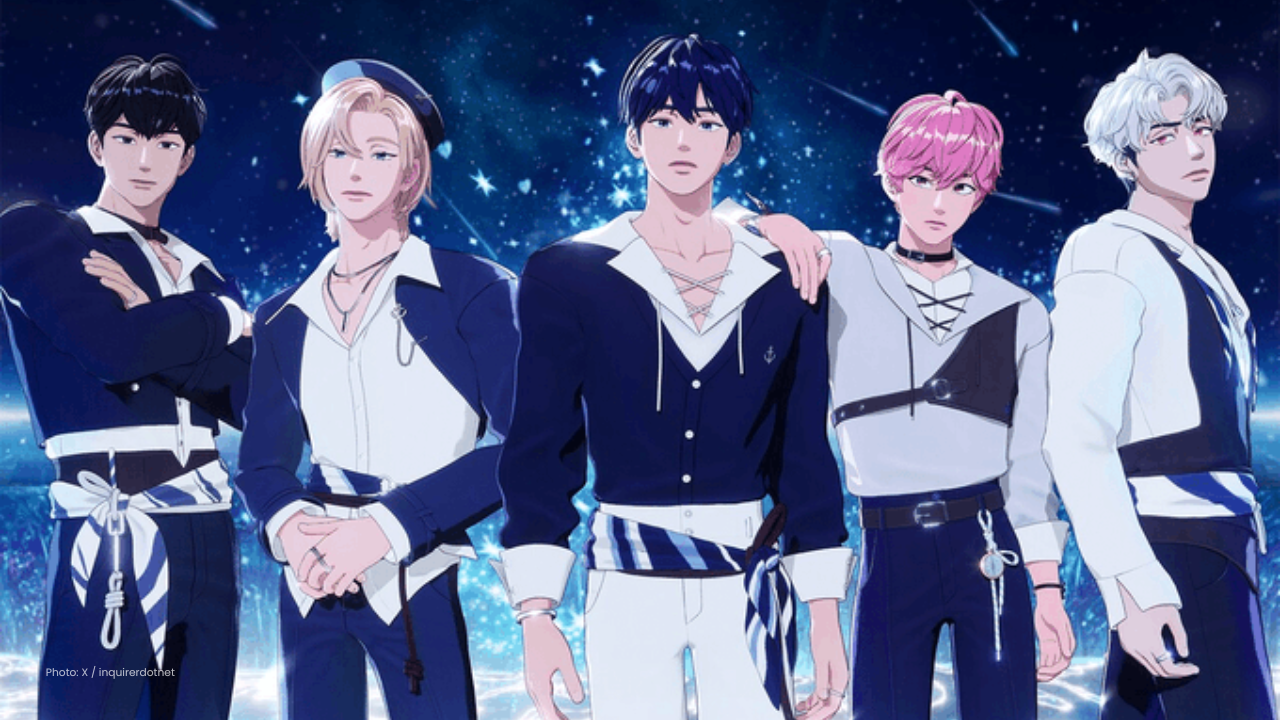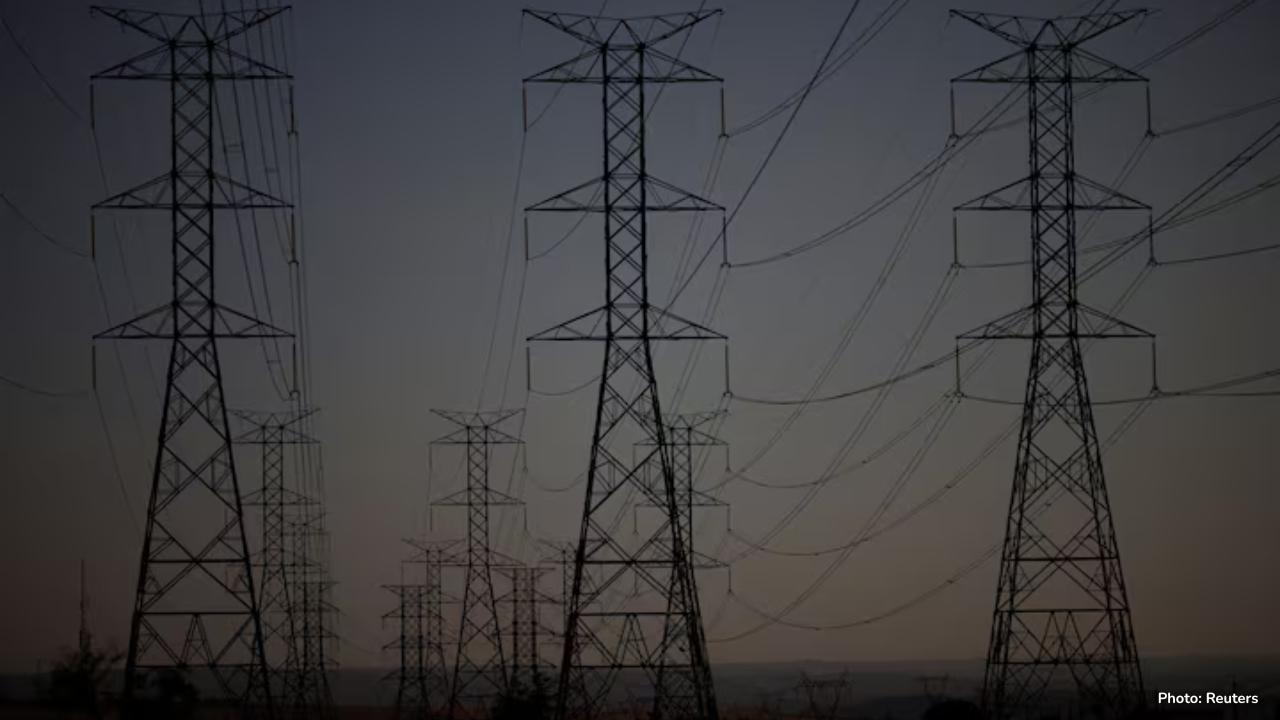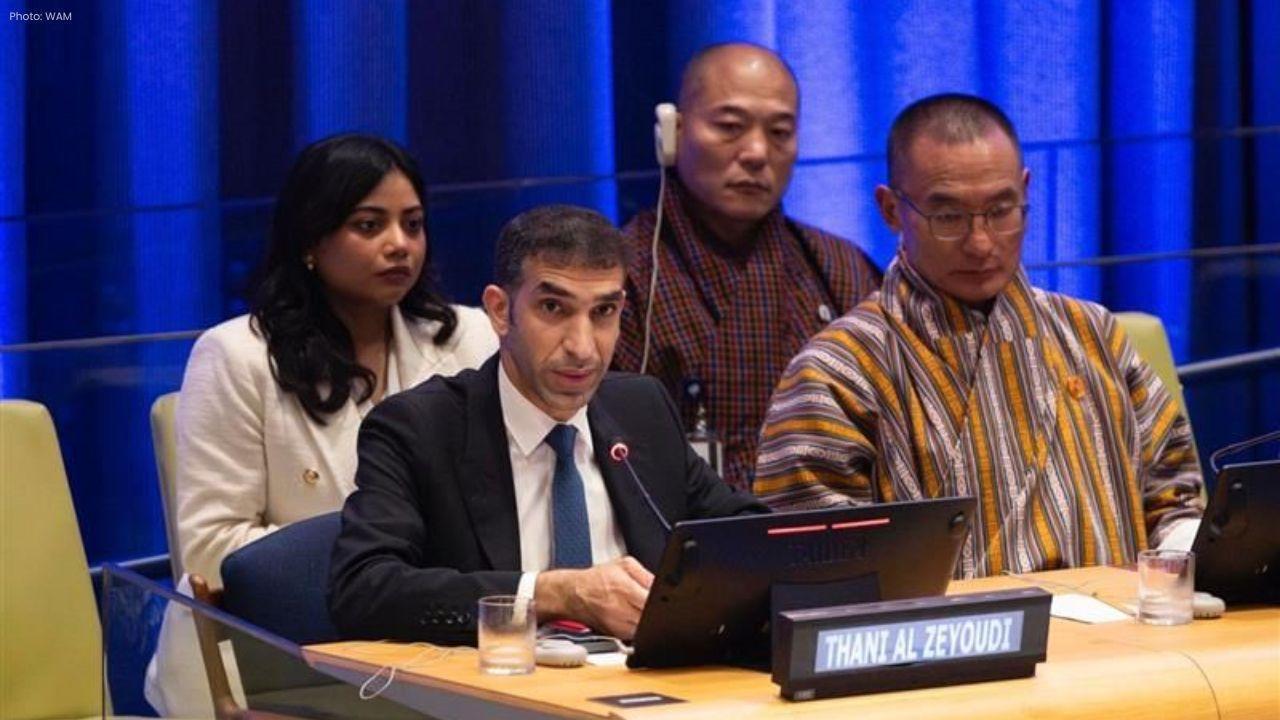
Post by : Naveen Mittal
In a first-of-its-kind case, a South Korean court has ruled that defaming virtual K-pop stars can still count as an insult to the real people behind them. The judgment came after a social media user was ordered to pay damages for posting offensive comments about Plave, one of the country’s most popular virtual boybands.
This ruling has drawn wide attention, as South Korea’s entertainment industry increasingly blends advanced technology with traditional music culture. The case also raises new questions about the boundaries of law, free speech, and digital creations.
Plave is not an ordinary K-pop group. The band consists of five virtual members created through motion-capture technology and animation. Each avatar is controlled and voiced by real performers, though their identities remain anonymous.
Since their debut in 2023, Plave has become one of the most successful virtual K-pop groups. Their YouTube channel has crossed over one million followers, with fans enjoying both their music videos and vlogs.
The group is not only popular online but also active in the mainstream entertainment industry. They regularly attend major music award shows. Their track Way 4 Luv was nominated for Best Vocal Performance and Song of the Year at the 2024 MAMA Awards. In 2025, they won a major honor at the Seoul Music Awards, proving that virtual idols can stand side by side with human K-pop stars.
In July 2024, a social media user began posting a series of harsh and insulting comments about Plave. The remarks included profanity and personal attacks, such as suggesting that the performers behind the avatars “might be ugly in real life” and claiming they gave off a “typical Korean man vibe.”
Plave’s agency, Vlast, saw these comments as damaging not only to the fictional avatars but also to the real artists who perform behind them. The company argued that the offensive remarks caused emotional distress to the performers and filed a lawsuit.
The case was unusual because it involved virtual characters instead of human celebrities. The defendant argued that their comments were only about the fictional avatars, not the real people behind them.
However, the court disagreed. The judge explained that if an avatar is widely recognized as representing a real performer, then insults directed at the avatar can also hurt the real person.
In May 2025, the court ruled in favor of Plave’s agency and ordered the social media user to pay 500,000 won (around $360) as compensation. The amount was divided equally, with 100,000 won for each of the five performers.
The court noted that while the comments were offensive, the damages were kept relatively low after reviewing the severity of the remarks and the circumstances of the case.
This ruling is significant because it establishes a legal precedent: even virtual celebrities can be protected under defamation laws if they represent real people.
Plave’s agency had originally asked for 6.5 million won for each performer, arguing that the attacks caused serious harm. Although the court awarded a smaller sum, the judgment still confirmed that insulting virtual idols has legal consequences.
Vlast has already announced plans to appeal the decision, insisting that the damages should have been higher. The agency believes that this case will set an important example for the future of entertainment law in South Korea.
The case also highlights how quickly virtual K-pop stars are rising in popularity. Virtual idols are seen as a solution to many of the pressures faced by human stars, who often deal with intense public scrutiny, criticism, and privacy invasions.
Because avatars are digital, they can perform endlessly without physical strain. They also allow agencies to experiment with new creative ideas, blending technology, animation, and music in unique ways.
Fans, especially younger audiences, have warmly embraced these digital performers, showing that the emotional bond between idols and fans can exist even when the idols are not flesh-and-blood humans.
The court’s decision has sparked debate. Supporters argue that protecting virtual idols is essential since they represent real people who can suffer from online harassment. Insults directed at avatars still affect the humans who bring them to life.
Critics, however, worry that such rulings could limit free speech. Some believe that since avatars are fictional, they should not be treated the same as humans under the law.
Regardless of differing opinions, the case has placed South Korea at the center of a global conversation about digital rights and virtual entertainment.
The ruling against the social media user who defamed Plave is more than just a fine—it is a recognition that technology and human creativity are deeply connected. As virtual idols become a larger part of the K-pop scene, laws and social norms will need to adapt.
For now, one thing is clear: whether an idol is human or virtual, respect matters. The court’s message is that online insults, even toward digital creations, can still cause real-world harm.
#kpop #plave #virtualidols #southkorea #defamation #law #entertainment #digitalculture #musicindustry #virtualstars










Brazil's Surplus Clean Energy Attracts Crypto Miners
Brazil's excess renewable energy is luring cryptocurrency miners. Companies like Tether and Renova E

Visa Tests Stablecoins to Make Global Payments Faster
Visa is testing stablecoins for international payments, aiming to speed up transactions and reduce t

Opera Unveils Neon AI Browser for Smarter Web Browsing
Opera introduces Neon, an AI-powered browser that automates tasks and enhances privacy, aiming to re

Albanese Visits Sheikh Zayed Grand Mosque in Abu Dhabi
Australian PM Albanese tours Sheikh Zayed Grand Mosque, highlighting peace, tolerance, and cultural

Eutelsat Seeks More EU Investment to Compete with Starlink
Eutelsat aims to close funding gap to challenge Starlink's dominance in satellite internet, with Fra

India Receives Above-Average Monsoon Rains for Second Year
India experiences above-average monsoon rainfall for the second consecutive year, boosting agricultu